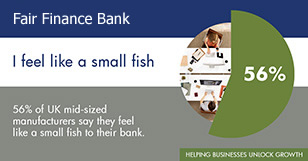
In this latest series of blogs, we take a deep dive into some of the UK’s most important sectors using our UK trade briefing report. Here we look into the iron and steel sector.
This report was prepared in collaboration with Global Trade Review (GTR) and it reveals that Pakistan, Turkey and India are the UK’s fastest growing export partners for iron and steel. Exports to these markets are expected to grow by 5.9%, 1.4% and 0.9% respectively in the years to 2021.
Iron and steel exports to these three markets were worth $1.4bn in 2017 and the projected growth could generate an extra $29m a year for the industry’s exports.
Figure one: fastest growing markets for UK iron and steel exports
|
Rank (fastest growing) |
Markets |
Growth rate per year to 2021 (%) |
Value in 2017 (US$) |
Projected growth per year (value US$) |
|
1 |
Pakistan |
5.9% |
$246m |
$15m |
|
2 |
Turkey |
1.4% |
$815m |
$11m |
|
3 |
India |
0.9% |
$339m |
$3m |
|
Total |
|
|
$1.4bn |
$29m |
The data also shows that alongside Turkey being one of the fastest growing markets, it is now the UK’s largest export market for iron and steel exports.
Iron and steel exports to Turkey have increased by 14% in the last ten years, these were worth $815m in 2017, some £100m more than in 2007 when exports to the country were worth $715m.
The research shows Turkey has become an important iron and steel export partner for the UK. This partly because of its infrastructure development fuelled by its economic growth. It is also due to the fact that the country is a staging post between Europe and the Middle East and Russia.
Turkey itself provides highly technical drilling and extraction equipment into the Middle East and North Africa region and is dependent increasingly on imports from countries like the UK.
The remaining largest iron and steel markets are the USA ($682m), Germany ($475m), Spain ($434m), and France ($384m).
India ($339m) is the UK’s sixth largest market, while Sweden ($328m), Ireland ($294m), the Netherlands ($255m), and Pakistan ($246m) make up the remaining markets in the top ten.
Meanwhile, iron and steel exports to Germany have decreased by two thirds over the period from $1.5bn to $475m. The pattern is similar for Spain and France where exports have declined by $666m and $591m respectively over the ten years from 2007 to 2017.
The decline in exports to Europe can be accounted for by depressed growth in the region until the last two years. In addition, there has been a shift in consumption in Europe away from UK manufactured iron and steel. This is reflected in the rates of growth in the UK’s top export destinations.
Metals exports are at the heart of manufacturing production globally. The iron and steel sector in particular is vital in producing components for all industries, as well as consumer goods.
Risks ahead
There are, however, several challenges for the sector as highlighted in the research.
First, there are specific risks around the US trade war which is centred on metals.
Despite this, the damage is likely to be more limited for the UK. This is because the iron and steel sector is smaller in value terms to UK exports than other sectors, such automotive and aerospace, so the impact will be restricted.
Second, there is downward pressure on prices globally which has pushed UK metals manufacturers higher up the value chain where they are a net exporter. This has caused a structural change in the sector which could continue if prices continue to drop.
Third, and the main challenge for sector, is to manage continued uncertainty. However, this is a global challenge and not only limited to the UK.
In such an environment, companies within this sector need working capital if they are going to continue to survive and thrive.
It is only by providing better access to funding that we can support businesses to trade, grow and create jobs.
To read more about the research, please see our UK trade briefing report: https://www.kdb-uk.com/uk-trade-briefing-2018/
****
This research was initially published in our UK trade briefing 2018 report, on which this blog and the data within is based. The sources for the research include the United Nations, Eurostat, the OECD and customs and excise data as well as UK Office of National Statistics data. The analysis is based on the trends and patterns in trade flows which it projects forward. It does not account for potential political or policy changes.
The information in this article is not the opinion of KDB Bank but based on the research commissioned and data provided by Global Trade Review in March 2018


